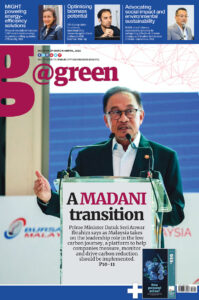COP26’s first significant deal has over 100 world leaders pledging to end and reverse deforestation by 2030. Among the signatories were Canada, Russia, China, Indonesia and Brazil, where a fair share of the Amazon rainforest had been cut down.
The promise included almost US$19.2 billion of public and private funds. Some funding would be channelled to developing countries to stop wildfire, restore damaged land and support indigenous communities.
However, experts reminded world leaders regarding the previous 2014 deal, which failed to slow the deforestation at all. They welcomed the move by countries but warned that commitments must be delivered.
Boris Johnson, the UK Prime Minister, said the deal was a ‘landmark agreement to protect and restore the Earth’s forests’.
Johnson said: “These great teeming ecosystems, these cathedrals of nature, are the lungs of our planet.”
Twenty-eight countries will commit to eliminating deforestation from the global trade of food and other agricultural products like palm oil, cocoa and soya, reported BBC. These industries contributed to forest loss by cutting down trees to make space for crops plantation or for animals to graze.
In addition, more than 30 of the world’s foremost companies will commit to stopping investment in activities linked to deforestation.
“Having Brazil signing the deal is important because it holds a large chunk of tropical forests. But the money must be channelled to people who can make this work on the ground,” said Ana Yang, Executive Director of Chatham House Sustainability Accelerator.








